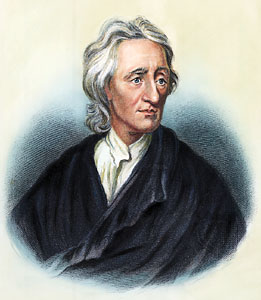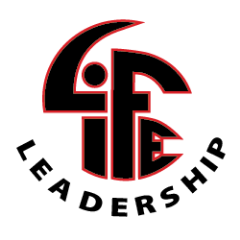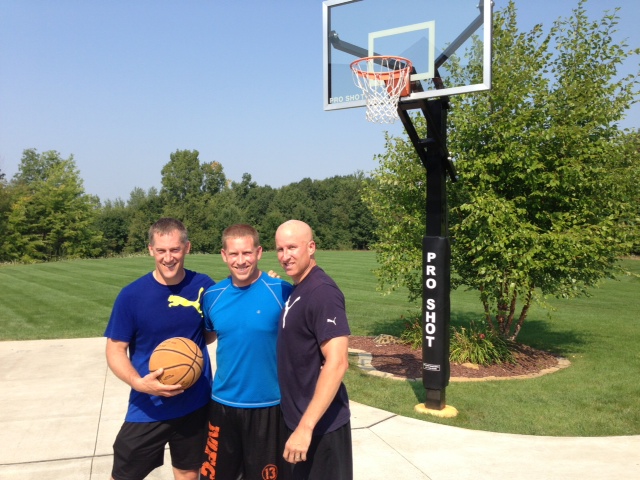I am studying John Locke and his thoughts on the state of nature. It is fascinating to me how this ties in with the Five Laws of Decline (FLD). For every page I write, it seems I have to read 100 pages, but what I am learning is beyond anything I expected. Below is a description of man’s inalienable rights, why governments were originally founded, and what happens to these governments due to the FLD. LIFE Leadership goal is to build a community that checks the FLD and allows liberty to prosper. I hope you enjoy reading this as much as I have researching and writing.
Sincerely,
Orrin Woodward
John Locke: State of Nature

John Locke
In his Second Treatise of Government, John Locke described how people, before they form societies, are in a state of nature. In the state of nature, each individual has a right and responsibility to defend his life, liberty, and property to ensure justice. However, as people realize the productive increases through specialization within society, it becomes increasingly expensive and difficult for each person, family, or clan to ensure the justice of all of its members. Accordingly, governments are created and assigned a specific role in the division of labor, namely to specialize in the systematic defense of its members life, liberty, and property, replacing each individuals personal right and responsibility to fulfill this function. Indeed, when government does its role properly, it allows each member of society to focus more of his time, resources, and skills in his field of expertise producing even further gains for himself and society. In sum then, a government’s true purpose is the delegated, specialized, and limited task of defending the people’s inalienable rights in a systematic method within society rather than the previous personal method employed by the people in the state of nature.
The historical record, interestingly, in contrast to Locke’s theory, reveals the majority of societies did not form a government under these auspices. Instead, the productive society was attacked by an external foe who sought to exploit the wealth of its weaker neighbor. In the end, an all-powerful state was forced upon the defenseless productive society after it suffered defeat in war. Curiously then, in practically every case, it was not the will of the people, but edicts issued from an external enemy backed by force, that created the state’s ruling party. The victorious invaders created a state to rule over the defeated host for its benefit. Basically, the victors created the state to discover various methods to systematically plunder the wealth generated from the productive capabilities of the defeated society. Nevertheless, in either example, whether society created a limited-government or endured a hostile takeover by an all-powerful state, the power in society seeks an equilibrium point. For every society’s rulers learn that without the consent of the masses, the government cannot endure. For instance, if at any time the ruler’s oppression becomes unbearable to the people, they will withdraw their tacit consent and turn to rebellion against their master. No ruler desires to inflame the people into these drastic measures. In essence then, the power equilibrium point is the maximum oppression the people willingly endure without resorting to resistance.
Paradoxically, the power equilibrium point reduces the tyranny of the most oppressive states, but increase it in the less oppressive ones. For on one hand, the FLD drives limited-governments to increase their power and sphere of activities through the usurpation of functions not originally delegated to it. On the other hand, however, the all-powerful states slowly surrender morsels of power to ensure the masses consent to the state’s rule. In both examples, unfortunately, the people lose their inalienable state of nature rights as the state increases its power by slight degrees over time. Dismally, the masses consent to being plundered by the state for the right to exist in peace and enslavement. Every single example of limited-government, due to the effects of FLD and the power equilibrium, has transformed itself into an all-powerful state with time. These all-powerful states grant just enough rights to the people to provide the illusion of liberty, making the people’s submission to exploitation easier than rebellion for lost rights.
For an explanation on how this occurs, it is important to remember how government’s function is different than any other in society. For every other part of society is based upon liberty and persuasion to determine the division of labor. Government, however, is based upon a delegated “monopoly of force” allegedly to defend the people’s unalienable rights. Unfortunately, this delegated force never remains within its delegated sphere. When it flows into other areas, it quickly destroys the liberty that was responsible for society’s health. In other words, what liberty and concord produced (a productive society), the unlimited power, unchecked force, and coercive measures of the state destroy. The historical record reveals numerous examples of limited governments transforming into a tyrannical states. In fact, the failures appear to follow a similar pattern where society grows under the liberty of limited-government and dies under the bondage of an all-powerful state. How many more rise-and-fall examples are needed to prove this point beyond dispute? Despite the depressing track record, however, the author still believes the quest for concord is possible. If society’s leaders can comprehend the symbiotic relationship between the liberty needed to grow society and the force needed to protect it, then the proper steps can be taken to check the excessive growth of force which leads to society’s demise.
Another important difference between the state and other areas of society is that the state does not produce any wealth. In fact, it consumes the wealth of society even when the government is limited to protecting the life, liberty, and property of its members. The question boils down to how society ensures the people’s inalienable rights it brought over from the state of nature without allowing the limited-governments to seize these liberties by converting into an all-powerful state. Yes, liberty within society produces more wealth than oppression, but plunderers care not for the overall health of society, but focus more on personal power and wealth. Accordingly, each society must solve how to create wealth and ensure the parasitic plunderers are checked. And, since society operates most effectively under liberty, but the state uses force, the key is to limit the State to only the few areas where coercion is needed (protection life, liberty, and property). This leaves the rest of society free to prosper under the blessings of liberty. Only a free society can give and take away power based upon the satisfaction of the needs and wants. A limited government only uses coercion when a member’s life, liberty, or property is threatened by either internal or external aggressors; otherwise its sword is sheathed. Unfortunately, the state, driven by mankind’s love of power, has proven itself unable to resist the temptation inherent in the “monopoly of force” to benefit itself at the society’s expense.












